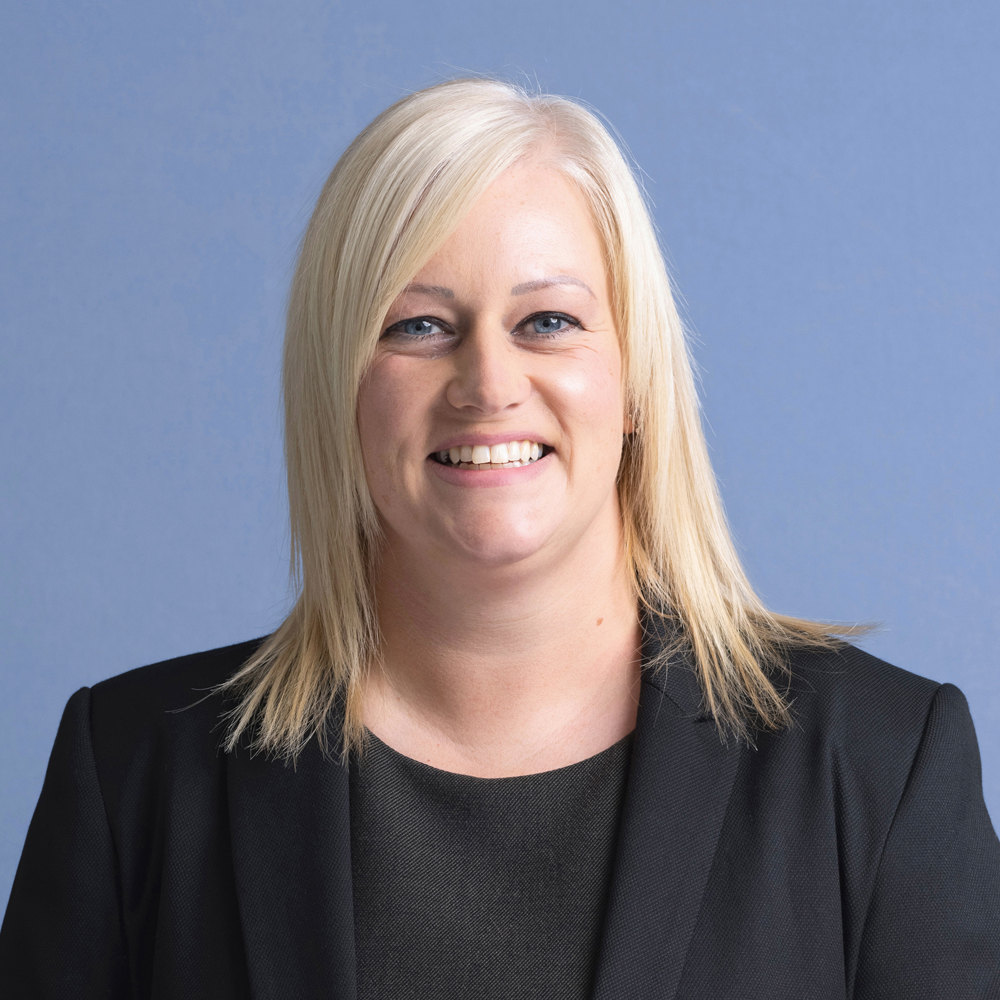
Since joining RSA in 2015, and moving to Pro in 2020, Natalie has embraced the technical challenges of legacy claims with enthusiasm and curiosity, supported by a network of experts across disciplines. She recently attended her first IRLA Congress in Brighton this May and is part of IRLA’s latest cohort of Future Leaders – an initiative designed to connect and nurture rising stars in the legacy market.
We caught up with Natalie to talk about her experience learning the ropes in the complex world of legacy claims, her first time meeting the market at Congress, and what it means to be part of the IRLA Future Leaders community.
Q1: You recently attended your first IRLA Congress – what was that experience like, and how did it feel to meet the legacy market for the first time?
Natalie: “It was a brilliant experience, I feel very grateful I was able to attend. I have heard so much about how beneficial Congress is for anyone in the legacy space, but being there in person really brought it to life. It gave me an opportunity not only to meet individuals involved in claims, but others across the industry as well. Everyone was so open and willing to share insights, which gave me a real sense of how interconnected everything is. As someone who is looking to progress in my career, I found it incredibly valuable to get a feel for the wider market, and how many opportunities there are to grow if you’re curious and proactive.”
Q2: You’re also part of the IRLA Future Leaders cohort – how has that helped shape your career?
Natalie: “I have worked in the Legacy Market for some time now, but recently I have been looking to progress my career. The Future Leaders programme has come at the perfect time and has been a huge confidence boost for me. It’s great to be surrounded by people who are equally passionate about the industry. There’s a real sense of camaraderie and shared learning, through the training sessions or informal chats with the other cohort members. I’ve come away with new ideas, a broader understanding of the market, and some great mentors too. It’s has helped me realise how I can make a difference as a Leader in the Legacy Market”
Q3: What’s it like working at Pro when it comes to handling complex claims?
Natalie: “One of my favourite things about Pro is the people. I’m surrounded by a fantastic team of experts with a depth of knowledge in areas such as legal, underwriting, and loss adjusting. There’s a real culture of knowledge-sharing, which makes such a difference when you’re navigating complex claims. I’ve learned so much just by being part of conversations with my colleagues, where we mutually share knowledge and claims experiences, which enhances the service we provide for our clients. It is exciting to be part of an organisation that has seen such growth over the last few years. I look forward to understanding more about the wider business and continuing to progress my career.
Thanks for taking the time, Natalie. Stay tuned for more stories from across our team as we continue to Meet the Pros.

Name: Natalie Smithson
Job title: Claims Technician
To speak to the Pro Global team please feel free to reach out to us at:

To contact our PR team directly please use the link below

One of the most effective ways to reduce the overall cost of a claim is to act early and proactively. Prompt notification, triage, and evidence gathering can significantly limit cycle times and costs. By establishing clear reporting processes and using digital tools to log and track claims from the outset, authorities can reduce lifecycle costs and improve outcomes.
For example, enabling online claims submission with automatic ingestion of work items and alerts to internal teams and claims handlers ensures no time is lost. Claims can be assessed for fraud risk, policy coverage and liability upfront – reducing the chance of protracted investigations or litigation.
Many local authorities may not be making full use of the support available through their insurance arrangements. From risk management advice to expert loss adjusters and legal services, a collaborative approach with brokers, insurers, and TPAs can unlock hidden value.
Take time to review service level agreements (SLAs) and policy wording to identify underused benefits or areas where service delivery could be improved. Consider renegotiating terms to ensure you’re getting the most cost-effective and responsive support possible. Using smart technology to automate complex excess/LOI calculations in long tail claims ensuring the insurance assests are maximised and leakage is avoided.
Shared service models and regional risk pools are becoming more popular – especially for smaller councils. Pooling resources and data helps to reduce duplication, drive down administration costs, and create more consistent claims-handling processes.
We’re seeing local authorities increasingly open to collaboration – not just between councils, but also with their partners and technology providers – to benchmark performance and deliver joined-up claims strategies. Smart technology solutions provide fully integrated solutions minimising unnecessary duplication and enabling smart handovers/instructions to suppliers and lawyers, ensuring real time access to claims and ensuring secure data transfer.
The future success of public sector claims management lies in the ability to harness data. With the right analytics in place, local authorities can gain powerful insights into the root causes of claims, identify recurring trends, and focus resources where they will have the greatest impact.
Data visualisation dashboards can track KPIs such as average claims cost, time to close, and frequency by type or location. This not only supports better internal reporting but also enables more strategic conversations with insurers about risk appetite, pricing, and cover.
Looking Ahead: Digital Maturity as a Cost Control Lever
As we discussed in our previous blog, adopting the right digital tools is critical to achieving sustainable cost reduction. Whether through automation, AI – enabled triage, or improved integration with supplier and insurer systems, technology is no longer a ‘nice – to – have’ – it’s a cost – control lever.
Want to learn more about how to manage claims more effectively under pressure? Let’s talk.
Pro Global will be at ALARM Risk 2025 – come and meet the team and explore how we can help your authority navigate today’s challenges and tomorrow’s risks.

Name: Michael Mackenzie
Job title: Head of Specialist Claims
To speak to the Pro Global team please feel free to reach out to us at:

To contact our PR team directly please use the link below

However, there is strong evidence to indicate that artificial intelligence (AI) and automation combined with trusted expertise can transform the way public sector claims are handled, ultimately saving money for the public purse.
We have demonstrated through harnessing technology that operating expenditure savings can be derived at circa 15%, with projected indemnity savings in the millions of pounds through improved IBNR (Incurred But Not Reported) for existing clients. This data underpins the financial benefits of leveraging smart automation and AI-driven claims solutions in the public sector.
The Digital Transformation of Public Sector Claims
At Pro Global, we understand the challenges that local authorities face in complex liability claims management. That’s why we offer a fully integrated solution combining human expertise supported by our PELICAN software – a one-stop platform designed to enhance efficiency, control, and claims outcomes.
Key Benefits of PELICAN:
A Unified Claims View – A single source of the truth i.e., a centralized system where all claims are handled and accessible in real-time, ensuring consistency.
Seamless Integration – Our fully integrated platform enables all key stakeholders and suppliers to streamline their operations by eliminating duplication, avoiding unnecessary handovers reducing time and cost.
Automated Workflows – Administrative tasks are automated providing real time workflow data speeding up resolution times and reducing administrative overhead.
Enhanced Data Quality – Improved data visibility via real time analytics and automated reporting suites leads to better decision-making, reduced claims leakage, and more robust fraud detection.
Cost Savings – By optimizing claims management processes, reducing legal fees, and enhancing operational controls, local authorities can achieve significant financial savings.
Transforming Claims Management for Better Outcomes
We are working closely with local authorities to support them in harnessing the power of technology to achieve a more effective, transparent, and data-driven approach to complex claims management. We are seeking to prove that by applying targeted AI and automation solutions local authorities can reduce the burden of handling complex liability claims but also enhance compliance, mitigate risks, and improve overall outcomes.
At Pro Global, we’re committed to supporting public sector organisations in navigating the complexities of claims management with innovative, technology-driven solutions.
Our team will be attending the ALARM Risk National Conference from 22 to 25 June, 2025. Are you a local authority looking for a more efficient way of handling claims? Get in touch to find out more and arrange a meeting if you are attending: getintouch@pro-global.com

Name: Michael Mackenzie
Job title: Head of Specialist Claims
To speak to the Pro Global team please feel free to reach out to us at:

To contact our PR team directly please use the link below

This article is shared with the kind permission of The European Financial Review.
It’s a moment that every insurance executive knows all too well – the start of a new year, full of fresh opportunities, ideas – and the arrival of the much-anticipated “Dear CEO Letter” from the Prudential Regulation Authority (PRA) outlining its supervisory priorities for 2025.
These priorities – reinforcing the need for robust governance, risk management, and operational resilience across the insurance sector – while aligned with long-term market stability, will require insurers to proactively reassess compliance strategies, resource allocation, and risk frameworks.

Breaking Down the PRA’s 2025 Priorities – Key Focus Areas:
1. Solvency UK Implementation and Other Policy Reforms The PRA will prioritise ensuring that Solvency UK reforms are implemented and embedded. Following its consultation on proposed reforms to the UK Insurance special purpose vehicle (ISPV) regulatory framework (closing February 2025), the PRA expects to issue its final policy (with a specific timeline not yet confirmed, but expected around mid-2025). This will be a crucial milestone for insurers to follow in ensuring full regulatory compliance.
2. Bulk Purchase Annuity (BPA) Market Developments, Including Funded Reinsurance Firms should consider the PRA’s July 2024 supervisory statement on funded reinsurance (SS5/24). The PRA’s view is that more work is needed, and expects rapid progress from firms. In particular, the PRA will include a funded reinsurance recapture scenario in the 2025 life insurance stress test (LIST).
3. Cyclicality in the General Insurance (GI) Market Insurers should remain vigilant regarding changes in pricing conditions. Natural catastrophe and cyber underwriting risks continue to be PRA priorities, and firms must ensure their underwriting and reserving strategies reflect current market realities.
4. Stress Testing The LIST 2025 exercise, launching later in February, will provide valuable insights into the financial resilience of the largest firms operating in the UK life insurance sector. Disclosure of individual firm results and aggregate results is expected by Q4 2025.
5. Liquidity Resilience The PRA’s focus is on improved liquidity reporting, and it will engage with firms on its proposals in CP19/24. The PRA encourages insurers to sign up early for the Bank of England’s contingent Non-Bank Financial Institution (NBFI) repo facility (CNRF).
Firms will also recall that in 2024, the PRA conducted a thematic review of life insurers’ liquidity risk appetites. The PRA will continue to follow up with firms on this in 2025.
6. Solvent Exit Planning for Insurers The PRA will begin to engage with insurance firms on the final policy regarding solvent exit planning for insurers (PS20/24) to support understanding of its expectations. This will be in preparation for the requirements that come into force in June 2026.
7. Operational Resilience, Cybersecurity, and Third-Party Risk The deadline of 31 March 2025 marks the end of the transition period for in-scope firms to comply with the FCA’s enhanced operational resilience requirements. The PRA expects insurers to continue working toward that deadline, ensuring that boards and senior management functions (SMFs) are actively monitoring and managing risks arising from digital transformation and vendor relationships. The PRA also anticipates the release of thematic findings from the latest Cyber Stress Test, which should be reviewed carefully by firms. Additionally, a PRA and FCA consultation on ICT and cyber risk management policy is expected in H2 2025.
8. Climate Risk Management The PRA has identified that firms are yet to fully embed its climate-related expectations, particularly in terms of scenario analysis and risk management. Further engagement with firms is planned for 2025, and the PRA is also preparing to consult on an update to its supervisory statement on enhancing banks’ and insurers’ approaches to managing financial risks from climate change (SS3/19).

Each of these priorities places significant ongoing demands on insurers, from tightening internal controls to ensuring greater transparency and reporting efficiency. The challenge lies in balancing regulatory adherence with available resources and operational agility.
With the PRA reinforcing its focus on long-term financial stability, insurers must act now to avoid reactive compliance strategies that drain resources and expose firms to regulatory risk.
Embedding Regulatory Reforms into Business Operations
The transition from Solvency II to Solvency UK requires more than policy adjustments; it demands a cultural shift towards sustained regulatory alignment. Insurers must establish clear governance structures, with cross-functional teams dedicated to embedding Solvency UK requirements into investment decisions, capital management, and risk reporting.
Strengthening Risk and Reserving Strategies
With increased scrutiny on BPA transactions and reserving assumptions, insurers need to enhance their risk modelling frameworks. The PRA has highlighted concerns over optimistic profitability assumptions in general insurance underwriting—this means firms must ensure internal models are stress-tested against real-world claim trends and economic volatility.
Automating Compliance and Reporting Processes
The scale of regulatory demands could make manual compliance unsustainable for many insurers. Digital transformation is key to ensuring accuracy, consistency, and efficiency in reporting. Automated systems can help insurers track and validate risk exposures, meet data governance requirements, and align internal controls with regulatory expectations.
Reviewing Appointed Representative (AR) Arrangements
The FCA’s enhanced scrutiny of Appointed Representative (AR) models has already impacted the market, and the PRA is expected to maintain pressure on firms to ensure ARs operate with appropriate oversight. Insurers must review existing partnerships to assess risk exposure, compliance processes, and governance frameworks. A structured due diligence and monitoring approach can help mitigate regulatory risks and protect against potential supervisory interventions.

As insurers continue to navigate the PRA’s evolving regulatory landscape, the emphasis will remain on strengthening resilience, enhancing governance, and embedding forward-looking risk management practices into daily operations.
So, as you dust off your resolutions and dive into another year of opportunities, remember that the PRA’s “Dear CEO Letter” is less of a surprise and more of an annual tradition – like the office birthday cake you didn’t ask for but always end up sharing. It’s a reminder that while the year may be new, the regulatory challenges remain just as persistent.
But, waiting for a regulatory review to identify weaknesses is a high-risk approach. Early action is critical to meeting the PRA’s expectations and maintaining compliance in an increasingly complex environment. Regular internal audits and third-party assurance reviews that focus on areas such as cyber resilience, reserving adequacy, and capital management will allow firms to stay ahead of supervisory interventions.
To speak to the Pro Global team please feel free to reach out to us at:

Name: Richard Emmett
Job title: Head of Insurance Services

To contact our PR team directly please use the link below

Coming from a legal background, Alex joined Pro Global in the Summer of 2022 as part of the Complex Claims team, which was relatively new. She had previously worked for a Claimant Solicitor, bringing asbestos-related claims, and subsequently for an Insurer, working on a portfolio of complex claims.
We were lucky enough to catch up with Alex and shine the spotlight on her role – including her journey at Pro Global, her perspective on the evolving claims landscape, and the rewarding – and sometimes challenging – nature of handling complex claims.
Alex highlights that complex claims often present consistent challenges, particularly due to intricate policies with lengthy exclusions and confusing excess terms. Additionally, meeting Service Level Agreements (SLAs) – contracts that outline the required service standards for insurance providers – is essential for securing client agreements.
But now “everything is becoming more streamlined” with technology and data analytics playing a major role in improving claims processes.
Alex says: “We have end-to-end claims processing, everything is within the same system – from intimation, policy record searching, payments, to closure.
“Pro Global Claims is also developing an updated claims processing system, which will speed things up even further, as well as provide transparency to clients as they can access the system – our team for Prudential’s claims are already using it, and it will be ready to use by leading insurers within the next few months. Data capture – this is easily extracted so we can see trends in our handling and SLA efficiency.”
In addition, with fraudulent claims, data capture is pivotal in triaging suspect claims and identifying fraudulent patterns through comparison with other evidence.
Despite this digitalisation, Pro Global advocates a balanced approach between technology and the human in the loop. As trusted advisors to the global re/insurance sector, the experts at Pro Global have an unmatched perspective of the trends, opportunities and challenges impacting the sector operationally and financially around the world.
“When I started my very first job in the legal sector, it was pretty much all paper files. At Pro Global it’s all electronic, you can answer any query, and I can do more in less time,” Alex adds.
She pinpointed 2014 to 2015 as the “pivotal years” for the changeover from manual to digital systems.
Alex says: “Before joining Pro Global, I had never worked with such a diverse group of professionals. There’s always someone to turn to for questions, each bringing valuable experience and insights.” The most rewarding part of her job is successfully navigating intricate legal challenges that arise as well as working with her team.
The business has an open forum where case or trial legalities as well as unusual or groundbreaking evidence can be shared.
Alex says: “We have a mixture of experience – many people who worked for years directly for insurers, now work on their book of business within Pro Global. This brings such a depth of understanding of policies and procedures. We then also have a vast range of experience from other insurers, law firms, and industries, it is the most cohesive and knowledgeable workforce I have ever been part of.”
Describing the claims team in one word – ‘strategic’ – she concludes: “Every claim is different, and from the outset needs a unique strategy”.

Name: Alexandra Hebblewhite
Job title: Senior Claims Technician – Complex Claims
To speak to the Pro Global team please feel free to reach out to us at:

To contact our PR team directly please use the link below
This article was originally published on TheInsurer.
Steve Bellingham, head of claims strategy at Pro Global, on the risk of rising silicosis compensation claims…

With growing media coverage warning of a potential epidemic, increased enforcement by the Health and Safety Executive (HSE) and heightened activity from claimant lawyers seeking cases, how significant is the risk of rising silicosis compensation claims for UK insurers?
Silicosis is an incurable occupational lung disease caused by inhaling respirable crystalline silica dust, commonly found in materials such as stone, sands, clays and engineered stone.
There are three forms of silicosis: chronic, accelerated and acute, all of which can progress even after exposure has ceased.
Industries at risk
Employees in industries such as construction, mining, foundries, glass manufacturing and, more recently, stone fabrication are particularly vulnerable. The growing popularity of engineered stone for kitchen and bathroom countertops has introduced additional risks.
Engineered stone, which can contain more than 90 percent crystalline silica, has seen rapid adoption globally. For instance, the US reported a 700 percent increase in imports of engineered stone between 2010 and 2019. The material’s fabrication processes, as cutting and polishing, can release hazardous levels of silica dust if not adequately controlled.
International trends: lessons from the US and Australia
In the US, states such as California have introduced enhanced safety standards for stone fabrication in response to rising silicosis cases, particularly among small businesses with poor health and safety practices.
In Australia, silicosis has long been associated with mining and construction, but recent cases have highlighted risks linked to engineered stone. Once rare, civil compensation claims have re-emerged as diagnoses increase.
Engineered stone, introduced in 1998, became a dominant material for countertops until its ban by the Australian government in June 2024. This surge in popularity led to a proliferation of small, often poorly regulated businesses, creating widespread exposure risks.
The UK landscape
In the UK, silicosis-related claims remain low, with only 35 Industrial Injury Disablement Benefit applications in 2023, up from 30 in 2022 and 25 in 2021.
While modest, this increase could mirror trends observed in other countries where engineered stone usage surged.
Despite these figures, comparisons to asbestos are, for now, alarmist. The widespread and prolonged exposure associated with asbestos, combined with its latency period, created a unique compensation landscape that silicosis has yet to approach.
Prevention and insurer considerations
Unlike asbestos, exposure to silica dust is preventable with effective controls. Measures include dust extraction, wet-cutting techniques and appropriate respiratory protective equipment. The HSE has ramped up its efforts to educate employers, particularly those in stone fabrication and kitchen supply industries, on minimising exposure risks.
For insurers, assessing risks in relevant occupations hinges on identifying high-exposure industries, scrutinising health and safety practices, and monitoring compliance with workplace exposure limits.
Looking ahead
While the evidence suggests that silicosis cases in the UK may rise, particularly with increased clinical awareness and reporting, the scale of the risk remains far from the levels seen with asbestos.
However, heightened vigilance is essential to manage emerging risks and ensure that preventative measures are enforced across the most affected industries.

Name: Stephen Bellingham
Job title: Head of Claims Strategy
To speak to the Pro Global team please feel free to reach out to us at:

To contact our PR team directly please use the link below
As the Lloyd’s and London Market grows – forecasted to expand from $115 billion to $150 billion over the next five years – the importance of effective and resilient claims handling has never been more critical. Claims Third-Party Administrators (TPAs) play a pivotal role in ensuring smooth operations within this expanding ecosystem. However, Lloyd’s 2025 Market Oversight Plan has made it clear that there’s room for improvement, particularly in claims cost management and business retention.

How can TPAs can strengthen their operations to align with Lloyd’s new focus on raising claims to a “hurdle principle,” ensuring market-wide excellence in claims service?
Why the Focus on Claims Now?
Lloyd’s has identified claims handling as a cornerstone of market resilience and customer satisfaction. The 2025 Market Oversight Plan specifically states that elevating claims as a “hurdle principle” aims to “deliver a superior claims service to customers and contribute positively to the overall market financial performance through tangible improvements in claims cost management and business retention”.
This strategic shift underscores the importance of enhancing claims data accuracy, improving forward-looking case reserve management, and embedding operational resilience into claims handling processes.
Challenges Facing Claims TPAs
With over 300 TPAs supporting the Lloyd’s market, the variability in capabilities and practices presents significant challenges, including:
Best Practices for 2025
1. Data-Driven Decision-Making
Accurate and timely claims data is critical for effective decision-making. Lloyd’s has highlighted the need for improvements in how delegated claims data is used to drive performance. Pro Global’s advanced platforms ensure transparency and deliver actionable insights, helping to proactively manage claims reserves and improve outcomes and setting the standard for TPA best practice.
2. Operational Excellence
The Lloyd’s Market Oversight Plan emphasises operational resilience as a key focus area. Pro’s hybrid onshore-offshore delivery models and scalable claims platforms exemplify how TPAs can meet these demands. For instance, Pro’s UK claims platform, managing over £2 billion in liabilities, is built to handle complex specialty claims while maintaining efficiency and compliance.
3. Technology and Automation
Lloyd’s Blueprint Two and the 2025 oversight framework stress the importance of leveraging technology for claims management. Automation tools, like those deployed by Pro, streamline repetitive tasks and enable TPAs to allocate resources to high-value activities, reducing operational costs and improving client satisfaction.
4. Enhanced Governance and Compliance
With the integration of claims as a “hurdle principle,” Lloyd’s is prioritising governance in claims handling. Pro has already implemented a unified panel of law firms and robust compliance frameworks to support clients in navigating regulatory complexities.
5. Proactive Risk Management
The oversight plan also calls for better case reserve management influenced by emerging risks. Pro’s predictive analytics capabilities enable TPAs to identify and mitigate potential issues before they escalate, ensuring a proactive approach to risk management.
Setting a New Standard
Strengthening claims management capabilities is about delivering operational excellence in a complex, ever-changing environment. Complex claims require focus, dedicated expertise, trusted advisors, and a consistent commitment to best practices to manage them effectively and at scale.
As Lloyd’s pushes for a more customer-centric and resilient claims process, TPAs have an opportunity to raise the bar by adopting these principles. Pro Global is proud to be at the forefront of these developments, consistently delivering solutions that combine deep expertise, innovation, and resilience. This approach ensures not only the smooth functioning of the claims process but also sets new benchmarks for complex claims management excellence in one of the world’s most dynamic insurance markets.
To speak to the Pro Global team please feel free to reach out to us at:

Name: Richard Emmett
Job title: Head of Insurance Services

To contact our PR team directly please use the link below
This article was originally published on Claims Media.

Recent litigation in the USA has shone a spotlight on the risks associated with contact sports, but fewer people may be aware of similar legal actions now emerging in England and Wales.
These lawsuits allege that sports governing bodies have failed to protect professional athletes from neurological conditions, allegedly resultant from repeated concussive and sub-concussive impacts experienced during game play and training.
Currently, multi-claimant actions are ongoing in Rugby Union, Rugby League, and professional football, with over 500 claimants to date – a number that continues to grow. The claimants argue that, at the relevant times, these governing bodies had sufficient knowledge of the risks involved and failed to implement adequate measures to prevent injuries or materially reduce the risk.
The players argue that it’s not about avoiding all head impacts, but that they were exposed to far too many, sometimes in a very short period. They claim this has caused serious conditions like post-concussion syndrome, chronic traumatic encephalopathy (CTE), and early-onset dementia.
The organisations involved deny all the claims and strongly defend their actions.
When it comes to litigation, procedurally, these actions are moving very slowly, with the first Letter of Claim being issued in December 2020, and all actions have now litigated.
The Court has postponed its decision on issuing formal Group Litigation Orders but is currently managing claimants by their respective sports, while allegations and defenses remain broad, with key elements of disclosure still pending. Things are expected to speed up in 2025, however.
There are several tricky legal issues, and many questions remain unanswered. These organisations have told their insurers about the claims, but there’s still doubt over how these policies might be triggered to provide indemnity. Key questions being debated include:
The claimants have not specified when they believe each governing body became aware of the risks or the nature of the knowledge they allegedly possessed. Given the complex nature of the allegations, they will need to show more than a basic understanding of the risk in order to be successful.
The extent of any duty of care owed will impact whether there has been a breach. The Terms of Reference of each body, and their ability to take protective action will be relevant, and has not yet been fully interrogated.
Even if they had a duty to protect players, the court will consider what, if anything, they could have done to reduce the risk. For example, could they have changed the rules of the game; reduce the number of games played; or enforced longer recovery times after concussions?
Many of the conditions being cited could have multiple possible causes, not just head injuries.
Claimants will need to demonstrate a connection between their condition and the concussive events suffered, but it’s unclear what legal test will be applied.
Can claimants prove the index incidents made a direct contribution to their injury or merely the risk of that injury? If the latter, they may need to extend legal principles.
The court will also look at whether the conditions are “indivisible” (meaning they are entirely caused by head injuries) or “divisible” (meaning the severity of symptoms depends on the number of head impacts). This difference could affect the amount of Damages that might be recovered.
Issues for insurers and reinsurers remain significant and the policy trigger will determine if, and to what extent, coverage is affected. PL policies invariably were written on a “happening” or “occurring” trigger, raising the question: when did these neurological conditions manifest in legal terms?
Another key point will be medical evidence. The trigger could be the index concussion incidents or later when the neurological symptoms manifested or became inevitable.
In addition, indivisible conditions could result in a single policy trigger, but divisible conditions are likely to have multiple triggers, similar to what we see in abuse scenarios. Multiple triggers will also spread individual claims spend over several primary policies protecting carriers on excess of loss layers and bringing focus to specific contract wordings and opportunities to aggregate claims together.
The ongoing litigation against sports governing bodies in England and Wales could significantly impact the future of professional sports. These cases challenge how player safety is managed and raise key legal questions around duty of care, foreseeability, and causation. The outcomes may reshape how certain sports are played, and clarify the legal responsibilities of the organisations overseeing them.
For insurers and reinsurers, issues surrounding policy triggers and coverage remain crucial. The resolution of these cases will influence how policies respond to claims related to neurological injuries and will likely shape future risk management for both sports bodies and the insurance industry. With developments expected to accelerate, the results will be pivotal for all involved.

Name: Stephen Bellingham
Job title: Head of Claims Strategy
To speak to the Pro Global team please feel free to reach out to us at:

To contact our PR team directly please use the link below

This was our second year at the conference, and it was heartening to see the increased recognition of Pro Global as a Claims management provider for local authorities. Unlike last year, where many of our conversations were introductory, this year, attendees proactively approached our stand seeking support with claims, ideas, concepts, and clarifications. This shift indicates that our solutions are resonating well, particularly with local authorities, which is incredibly encouraging.
The conference agenda was rich with learning, networking, and training opportunities, allowing us to connect with members and industry experts. Our involvement in the logistics of the event provided us valuable insights into how we can refine our approach for next year to better serve the community.
One of the standout themes from our discussions with delegates this year was the integration of technology in claims handling, particularly automation and AI. The interest in digital transformation was palpable, with many questions about how these innovations can streamline claims processes and enhance efficiency. It is evident that the market is currently underserved in terms of smart automation due to the perceived high barriers to entry. At Pro Global, we are committed to lowering these barriers and enhancing our support with advanced digital services, ensuring local authorities can benefit from cutting-edge claims management solutions and smart automation.
Our support for Employers’ Liability (EL) and Public Liability (PL) claims handling, bolstered by our technology enablement, resonated strongly with attendees. The discussions reinforced the need for robust claims management solutions that leverage technology to improve efficiency and overall outcomes.
We extend our heartfelt thanks to the ALARM team for organising such a stimulating and successful conference and everyone who took the time to engage with us during the event. Your insights and feedback are invaluable as we continue to innovate and enhance our offerings.
If you would like to find out more about how Pro Global can support your claims management needs, please get in touch.

Name: Michael Mackenzie
Job title: Head of Specialist Claims
To speak to the Pro Global team please feel free to reach out to us at:

To contact our PR team directly please use the link below

Having worked for large insurers earlier in your career, what attracted you to Pro Global?
The Insurance sector, whilst large in size, is full of small circles (everyone knows everyone). I was aware of Pro and the work they did in the Employers’ Liability legacy space. Working as a Third Party Administrator was something I had experience of. I was familiar with – and liked – the Pro values, the work they did and the client base they had. I believed I had a skillset that could enhance that further.
You’ve worked in the Claims sector for most of your career – how have you seen it evolve?
I think we have seen significant evolution in the last 15-20 years. When I started my career everyone was looking at how to offshore their claims work – I even spent some time in India as part of the project team doing exactly that. However, now we’re seeing a lot of that work coming back onshore with Insurers and Reinsurers looking for either a full onshore model or a hybrid model, and for UK TPA’s to be working collaboratively with offshore providers.
We’ve also seen changes in technology. This will be an ever-evolving reality as automation and AI continue to grow and develop. However, whilst technology has a part to play in creating greater claims efficiencies, I believe that we still require the skill set that only our people bring, to handle the more complex claims.
What challenges do you think your clients face and how can Pro Global help solve them?
Our clients today are looking to reduce cost and settle genuine claims quickly. Pro has the technology in place along with an expert Disease and Illness team who can best advise on Strategies for these portfolios, streamline processes and ensure the right outcome, always ensuring customers are treated fairly.
What do you see as the market opportunities and challenges over the next 12 months?
Pro continues to work with the market and clients on a number of strategies which will see some good opportunities in the Legacy space. We see Head Injury in Sport as the ongoing market challenge and this is likely to gain momentum over next 12 months.
What is your call to action for claims specialists in insurance?
We all have a part to play in ensuring the next generation of Claims specialists have the right knowledge, skillset and confidence to continue handling these legacy books. My call to action is for all of the existing Claims Specialists to ensure they spend time training the more junior members of staff, passing on the knowledge you have like others did for you.

Name: Debbie Roome
Job title: Client Engagement Executive (Claims)
To speak to the Pro Global team please feel free to reach out to us at:

To contact our PR team directly please use the link below